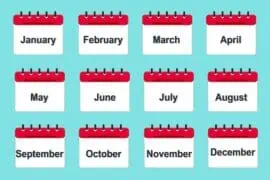I’ve been doing better in the past couple of years with my weight. If you go back to 2018, I was over 400 pounds, making two-up riding more than a little tricky.
Right now, I tip the scales at 275. It’s better, but still not ideal for smaller motorcycles when I’m the passenger.
Didn't You Try Our Quote Comparison Tool Yet? Save BIG by Doing it!
Although I purposely avoided motorcycles when I was at my heaviest, there were still times when I had to ride or be a passenger.
Controlling a bike when you’ve got someone on it that weighs almost as much as the equipment can be challenging.
Also, before beginning, it is important to have a clear understanding of passenger laws in your state.
Table of Content
Check Your Bike’s Specs
Before carrying a heavy passenger, ensure your motorcycle is designed and rated for two-up riding. Check the manufacturer’s guidelines and ensure that the combined weight of both riders falls within the recommended limits. If you’re over the manufacturer’s stated maximum, don’t try to operate the bike with your passenger.
Set Some Expectations
Talk to your passenger about the ride and set clear expectations. Tell them about the motorcycle’s movements, leaning angles, and any specific instructions they should follow. Establish good communication signals or use intercom systems to communicate effectively on the road.
I can tell you from experience that when you lean as a heavier person, it can throw the operator off from their expected line. It helps to practice riding together a little before going full speed on the road. Take turns and corners slightly slower, giving yourself ample time and space to maneuver.
Adjust the Bike’s Suspension
Riding with a heavier load may require adjusting the suspension settings to compensate for the added weight. Please refer to your motorcycle’s user manual or consult a professional to appropriately adjust your bike’s suspension.
Be Conscious About Positioning
Ask your passenger to sit as far forward as possible while being comfortable. If more weight is on the motorcycle’s rear wheel, you can cause the front to become too light, which impacts your stability. Extra pounds at the back can also prematurely wear out the tread if you ride two instead of one frequently.
Develop a Communication Method
All passengers should have a way to communicate with the motorcycle operator, but it is more crucial when you’re on the heavy side. Since road noise and wind make it hard to talk, consider developing hand signals that let you know what the other needs or expects.
Since passengers can have their attention in other places, they can become a great lookout for dangerous circumstances. I recommend having a warning tap or another specific signal that raises awareness.
If vocal communication is desired, consider setting up Bluetooth in your helmets with earphones and a mic.
Remember the Maintenance Milestones
Ensure that your motorcycle is well-maintained and the tires are properly inflated. The added weight will affect tire wear and performance even with correct balance and positioning, so it’s crucial to have good traction and control.
Safety should be your priority when riding with any passenger, regardless of their weight. If that person tends to be on the heavier side like me, please remember to make the necessary adjustments to your style to ensure you reach your destination safely.
Use This Tool for Free and Save on Quotes!






